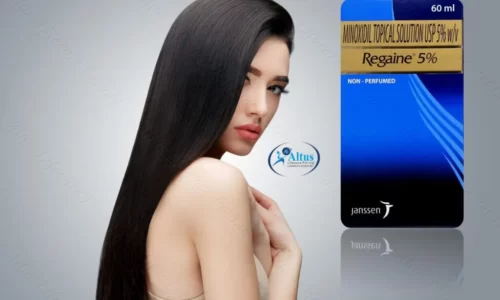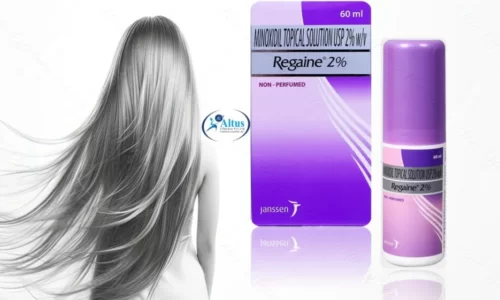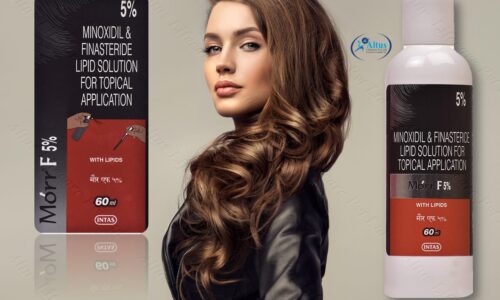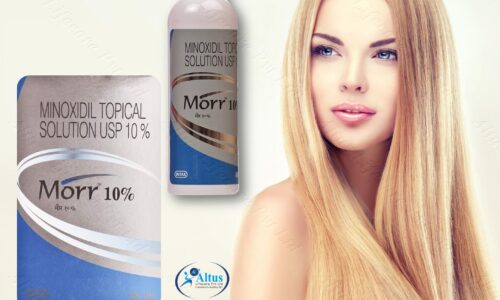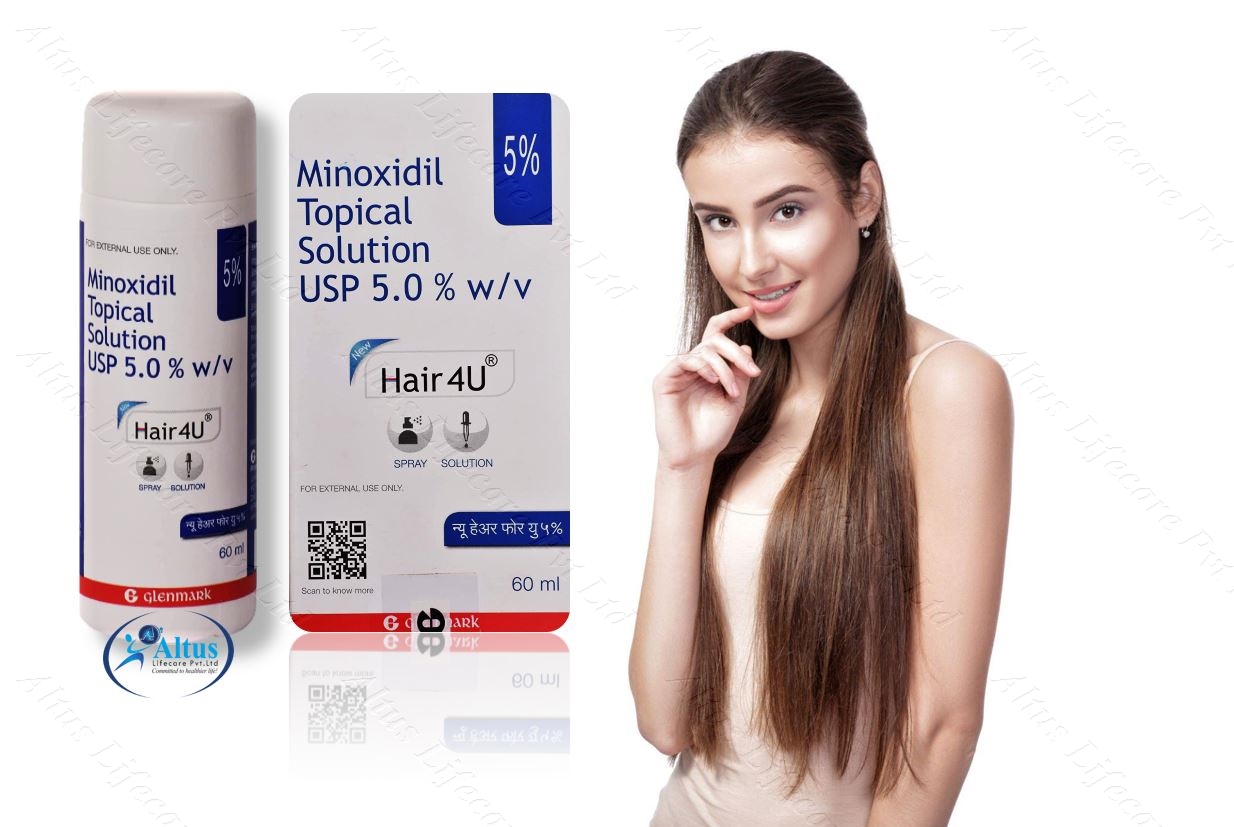
Revolutionary Hair Loss in Women Solution : Minoxidil and Finasteride Unleashed
Revolutionary Hair Loss in Women Solution : Minoxidil and Finasteride Unleashed
Are you tired of dealing with hair loss and longing for fuller, thicker locks? You’re not alone. Hair loss can be a frustrating and confidence-diminishing experience for both men and women. Fortunately, there are topical solutions available that can help combat hair loss and promote hair regrowth. In this comprehensive guide, we’ll delve into two popular options: Minoxidil and Finasteride results. We’ll explore how these treatments work, their effectiveness, and what you need to know before using them.
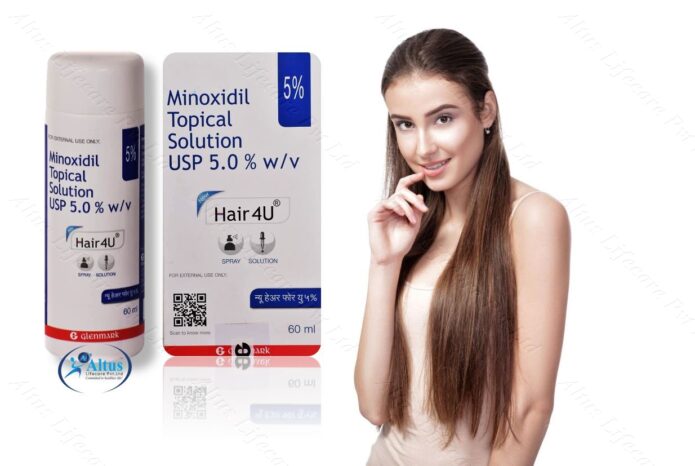
Table of Contents
I. Introduction
- Understanding Hair Loss
- The Quest for Fuller Hair
II. Minoxidil: The Miracle Topical Solution
- How Minoxidil Works
- Types of Minoxidil Products
- Application Tips
- Expected Results and Timelines
- Potential Side Effects
III. Finasteride: The Prescription Powerhouse
- The Mechanism of Action
- The Importance of Medical Consultation
- Dosage and Usage Guidelines
- Managing Side Effects
- Long-Term Benefits
IV. Combining Minoxidil and Finasteride
- A Winning Combination?
- Consultation with a Dermatologist
- Tips for Successful Combination Therapy
V. Lifestyle Tips for Healthier Hair
- Diet and Nutrition
- Stress Management
- Hair Care Practices
- Avoiding Common Hair Loss Triggers
VI. Conclusion
- Making an Informed Decision
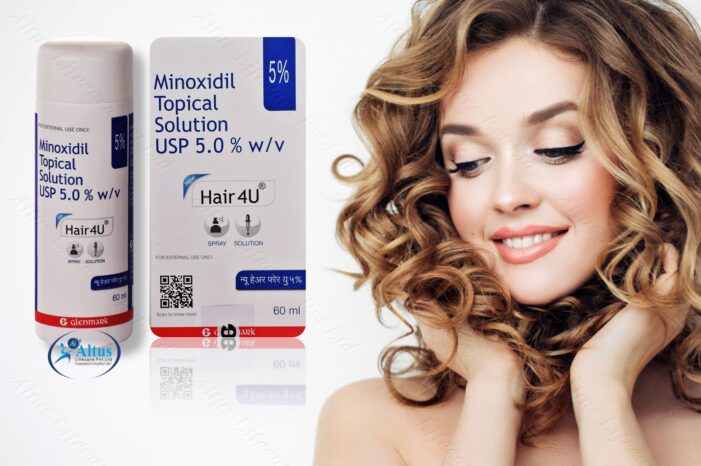
I. Introduction
Understanding Hair Loss
Balding, known as alopecia in medical terms, is a widespread issue that impacts millions of individuals across the globe. It can result from various factors, including genetics, hormonal imbalances, age, and environmental factors. While some hair loss is a natural part of the aging process, it can be distressing for those who experience it prematurely or to a significant degree.
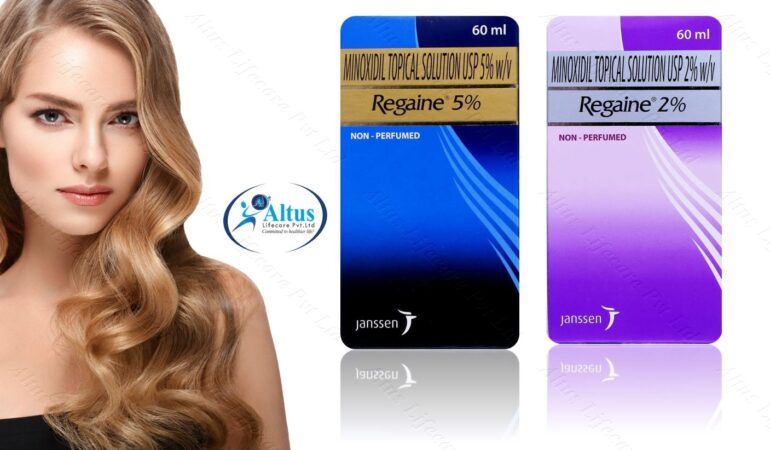
The Quest for Fuller Hair
The desire for thicker, fuller hair has led to a vast market of hair loss treatments and solutions. Among the many options available, Minoxidil and Finasteride stand out as two of the most widely recognized and trusted topical solutions for hair regrowth.
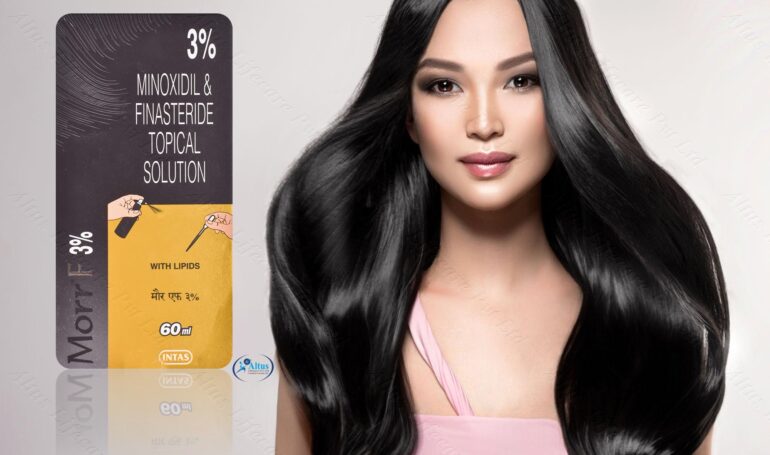
II. Minoxidil: The Miracle Topical Solution
How Minoxidil Works
Minoxidil, available over the counter in various formulations, is a vasodilator that improves blood flow to hair follicles. This increased blood flow can potentially stimulate hair growth in areas experiencing thinning or loss.
Types of Minoxidil Products
Minoxidil comes in various forms, including topical solutions, foams, and shampoos. The choice of product depends on personal preference and hair type.
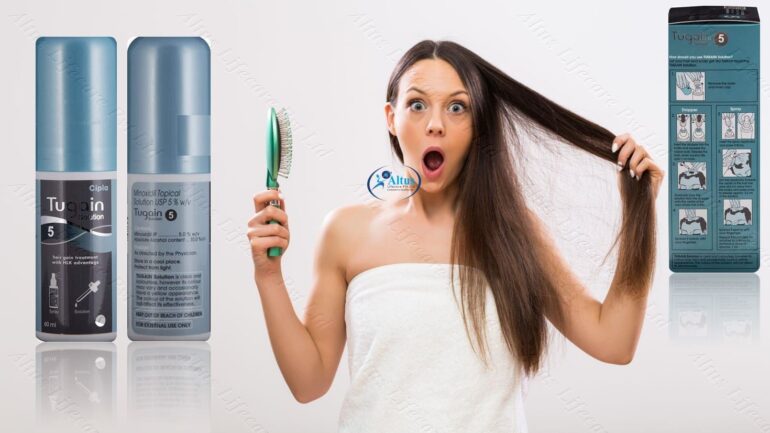
Application Tips
For optimal results, it’s essential to apply Minoxidil correctly. This usually involves applying the solution or foam directly to the scalp, following the instructions on the product label.
Expected Results and Timelines
Patience is key when using Minoxidil. Results may take several months to become noticeable, and consistent application is crucial.
Potential Side Effects
While generally safe, Minoxidil may cause side effects such as scalp irritation or dryness. It’s important to discontinue use and consult a healthcare professional if adverse reactions occur.
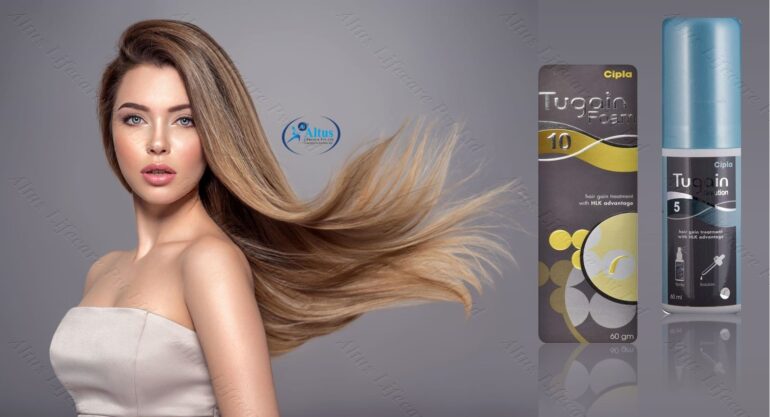
III. Finasteride: The Prescription Powerhouse
The Mechanism of Action
Unlike Minoxidil, Finasteride requires a prescription. It works by inhibiting the conversion of testosterone to dihydrotestosterone (DHT), a hormone associated with hair loss.
The Importance of Medical Consultation
Before considering Finasteride, it’s essential to consult a healthcare provider. They can assess your suitability for the medication and discuss potential risks and benefits.
Dosage and Usage Guidelines
Finasteride is typically taken orally, as prescribed. Following the recommended dosage and usage guidelines is crucial for safety and efficacy.
Managing Side Effects
Some users may experience side effects while taking Finasteride, including sexual dysfunction. Timely communication of any worries with your medical practitioner is essential.
Long-Term Benefits
Finasteride has shown promising results in slowing or reversing hair loss, making it a valuable option for those seeking a long-term solution.
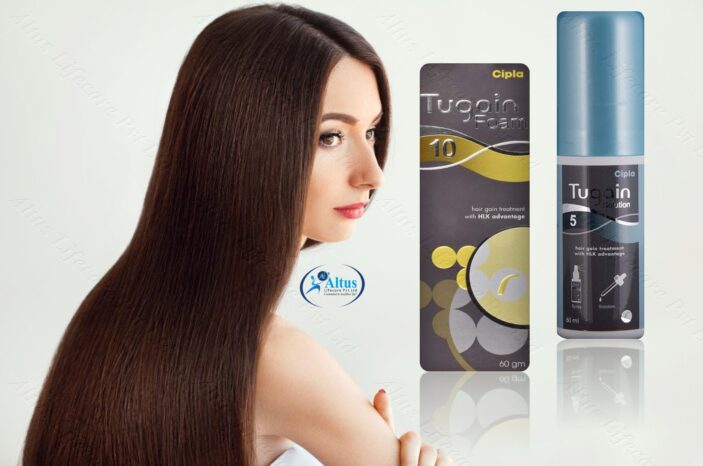
IV. Combining Minoxidil and Finasteride
A Winning Combination?
Some individuals opt to combine Minoxidil and Finasteride for a more comprehensive approach to hair loss treatment. Nevertheless, this action should solely be undertaken with the guidance and oversight of a qualified dermatologist.
Consultation with a Dermatologist
Before starting any combination therapy, consult with a dermatologist who specializes in hair loss. They can tailor a treatment plan to your specific needs.
Tips for Successful Combination Therapy
Combining these two treatments requires careful planning and adherence to guidelines. Your dermatologist can provide tips for a successful regimen.
V. Lifestyle Tips for Healthier Hair
Diet and Nutrition
Maintaining a nutritious diet that is abundant in essential vitamins, minerals, and protein is beneficial for promoting healthy hair. You may want to include items such as salmon, eggs, and leafy greens in your dietary choices.
Stress Management
Stress can contribute to hair loss. Engage in stress-relieving methods like meditation, yoga, or deep breathing exercises to enhance your well-being.
Hair Care Practices
Gentle hair care, including using a wide-toothed comb and avoiding excessive heat styling, can minimize damage and breakage.
Avoiding Common Hair Loss Triggers
Identifying and avoiding common hair loss triggers, such as tight hairstyles and harsh chemical treatments, can help preserve your hair.
Finasteride results
VI. Conclusion
In your quest for fuller, thicker hair, remember that individual results may vary. Choosing between Minoxidil and Finasteride, or a combination of both, should be based on your unique circumstances and in consultation with a healthcare professional. Patience and consistency are key, and a holistic approach that includes a healthy lifestyle can further support your journey to revitalized locks.
Frequently Asked Questions
1. What are Minoxidil and Finasteride, and how do they help with hair loss?
Minoxidil and Finasteride are two FDA-approved topical solutions for hair loss. Minoxidil is a vasodilator that promotes hair growth by increasing blood flow to hair follicles, while Finasteride inhibits the hormone responsible for hair loss.
2. How do I apply Minoxidil and Finasteride?
Minoxidil is typically applied as a liquid or foam directly to the scalp once or twice daily. Finasteride is taken orally in pill form, usually once a day.
3. Are these treatments suitable for both men and women?
Minoxidil is generally safe and effective for both men and women. Finasteride, on the other hand, is primarily prescribed for men, as it can have different effects on women, especially if they are pregnant or planning to become pregnant.
4. Are there any potential side effects associated with Minoxidil and Finasteride?
Minoxidil may cause scalp irritation, dryness, or itching. Finasteride can lead to sexual side effects like decreased libido or erectile dysfunction in some men. It’s important to discuss potential side effects with a healthcare provider.
5. How soon can I expect to see results from these treatments?
Results can vary, but many users start to see improvements in hair growth with Minoxidil within a few months. Finasteride may take longer, often several months, before noticeable results occur.
6. Can I use both Minoxidil and Finasteride together for better results?
Some individuals choose to use both Minoxidil and Finasteride in combination for a more comprehensive approach to hair loss. Consult with a healthcare provider to discuss whether this is a suitable option for you.
7. Do I need a prescription for Minoxidil and Finasteride?
Minoxidil is available over-the-counter, while Finasteride typically requires a prescription from a healthcare provider.
8. Can I stop using these treatments once I achieve the desired hair growth?
If you discontinue Minoxidil or Finasteride, the benefits may gradually fade, and hair loss could resume. It’s essential to discuss long-term usage and potential alternatives with your healthcare provider.
9. Are there any lifestyle changes or complementary treatments that can enhance the effectiveness of Minoxidil and Finasteride?
Maintaining a healthy lifestyle with a balanced diet, regular exercise, and minimizing stress can support overall hair health. Some individuals also explore laser therapy or PRP (Platelet-Rich Plasma) treatments as complementary options.
10. Where can I get more information and guidance about using Minoxidil and Finasteride for hair loss?
It’s advisable to consult with a dermatologist or healthcare provider who specializes in hair loss. They can provide personalized recommendations and monitor your progress while using these treatments. Additionally, reliable online resources and support groups can offer valuable information and peer experiences.
Access Now: Minoxidil and Finasteride Topical Solution – World Class Beauty Skincare
In conclusion, the path to fuller, healthier hair is within reach, thanks to topical solutions like Minoxidil and Finasteride. By understanding how these treatments work and consulting with a healthcare professional, you can embark on a journey towards regaining your confidence and enjoying the hair you’ve always desired.

